Water Testing Kits
Curium Water Testing Kits — Precision You Can Trust in Field Analysis
Designed for on-site water testing and rapid diagnostics, the Curium series stands out as a highly reliable and efficient solution. Developed in alignment with Standard Methods, these kits are engineered to assess total water hardness, offering critical insights into bivalent ion concentrations and the scaling potential of water.
Each kit is manufactured under strict laboratory conditions to ensure accuracy, repeatability, and quality assurance.
Available Test Parameters Include:
Bicarbonates
Calcium
Chloride
Chlorine
Nitrate
Nitrite
Ozone
Sulphate
Sulphite
Total Hardness
Free Chlorine
Phosphate
Bacterial Analysis
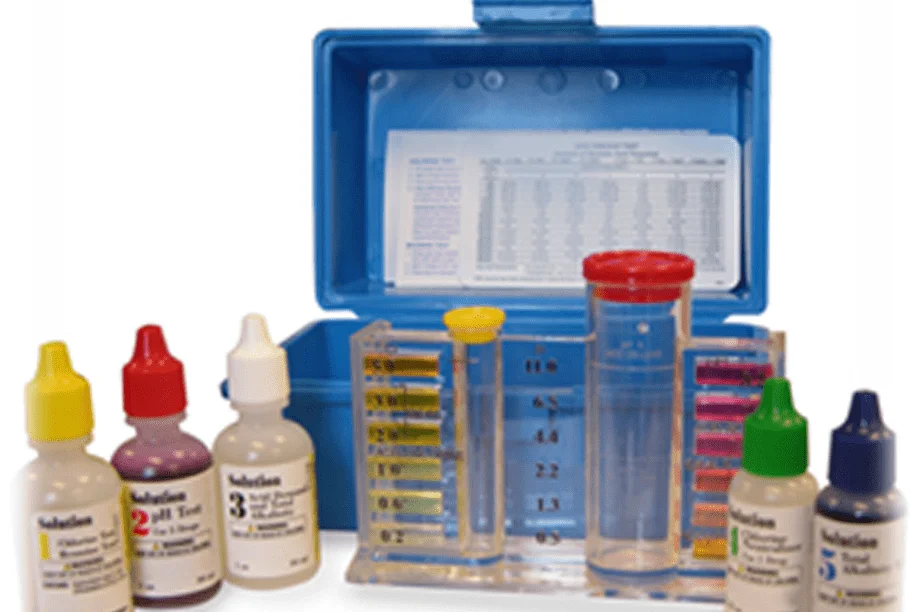
Definition and Purpose of Water Testing Kits
Water Testing Kits – Essential Tools for Water Quality Assessment
Water testing kits are specialized instruments used to evaluate key water quality parameters, helping determine the safety, purity, and potability of drinking water. These kits are designed to detect a wide range of contaminants and pollutants, ensuring that water meets established health and regulatory standards.
Available in various formats—from basic test strips for quick field checks to advanced laboratory-grade equipment for comprehensive analysis—these tools are indispensable for both domestic and industrial water monitoring.
Protect Your Facility with Advanced Water Filtration Systems
The Crucial Role of Water Testing Kits in Quality Assurance
Water Testing Kits – Empowering Access to Safe Drinking Water
Water Testing Kits are essential instruments in the pursuit of clean and potable water. Designed to measure a wide range of critical water quality indicators, these kits play a vital role in safeguarding public health by verifying that drinking water is safe, contaminant-free, and compliant with regulatory standards.
From monitoring pH levels and chlorine concentrations to detecting harmful bacteria and pollutants, these kits provide a comprehensive analysis. By equipping individuals and communities with accurate, actionable data, Water Testing Kits enable informed decisions about water consumption and resource management.
The Key Advantages of User-Friendly Water Testing Kits
Water Testing Kits – Empowering Access to Safe Drinking Water
Water Testing Kits are essential instruments in the pursuit of clean and potable water. Designed to measure a wide range of critical water quality indicators, these kits play a vital role in safeguarding public health by verifying that drinking water is safe, contaminant-free, and compliant with regulatory standards.
From monitoring pH levels and chlorine concentrations to detecting harmful bacteria and pollutants, these kits provide a comprehensive analysis. By equipping individuals and communities with accurate, actionable data, Water Testing Kits enable informed decisions about water consumption and resource management.
The Role of Water Testing Kits in Different Fields
Versatile Applications of Water Testing Kits Across Industries
Beyond residential settings, water testing kits serve as vital tools across a wide range of industries, including agriculture, healthcare, and environmental science.
Farmers rely on them to evaluate the quality of irrigation water, ensuring optimal crop health and soil management.
Healthcare professionals use these kits to maintain the safety and compliance of water supplies in medical facilities.
Environmental experts deploy them to monitor the health of natural water bodies, tracking pollutants and ensuring ecological balance.
These water testing kits are essential tools for protecting water resources and ensuring public health. With continuous technological advancements, they deliver greater accuracy and faster results, amplifying their significance in water quality monitoring, environmental management, and effective wastewater treatment. Their applications span across industrial, municipal, and research sectors, contributing to more efficient and sustainable water management practices.
Complementary Access Through Water Shops
While Water Testing Kits deliver accurate, on-site assessments, Water Shops complement this effort by providing easy access to safe, treated drinking water. Together, they form a reliable and accessible framework for communities to ensure water safety—from testing to consumption.
Importance of Water Quality Testing
Ensuring Access to Clean and Safe Drinking Water
Water quality testing plays a vital role in securing safe and reliable drinking water for both individuals and entire communities. Through the systematic analysis of water samples for potential contaminants, these tests help verify compliance with regulatory standards, ensuring that the water is suitable for human consumption.
⚠️ Health Risks of Contaminated Water
The presence of pollutants or pathogens in drinking water poses serious health threats, including the risk of waterborne illnesses such as cholera, typhoid, and various gastrointestinal infections. Routine water testing serves as a proactive measure, enabling early detection and prompt intervention to protect public health and enhance overall community well-being.
Benefits of Regular Water Testing
Safeguarding Water Quality Through Proactive Testing
Early Detection of Water Quality Concerns Routine water testing is essential for the timely identification of quality issues, including elevated levels of bacteria, pollutants, and chemical contaminants. Early detection allows for swift corrective action, minimizing the risk of potential health threats to consumers.
Preventing Waterborne Illnesses By accurately identifying and eliminating harmful pathogens and contaminants from drinking water sources, testing plays a critical role in preventing waterborne diseases such as cholera, typhoid, and other gastrointestinal infections. This proactive approach strengthens community health protections.
Ensuring Infrastructure Integrity Consistent water quality monitoring also helps detect issues within the water distribution infrastructure, including leaks, pipe corrosion, or contamination risks. Addressing these concerns promptly ensures the efficiency, reliability, and safety of water delivery systems that serve local populations.
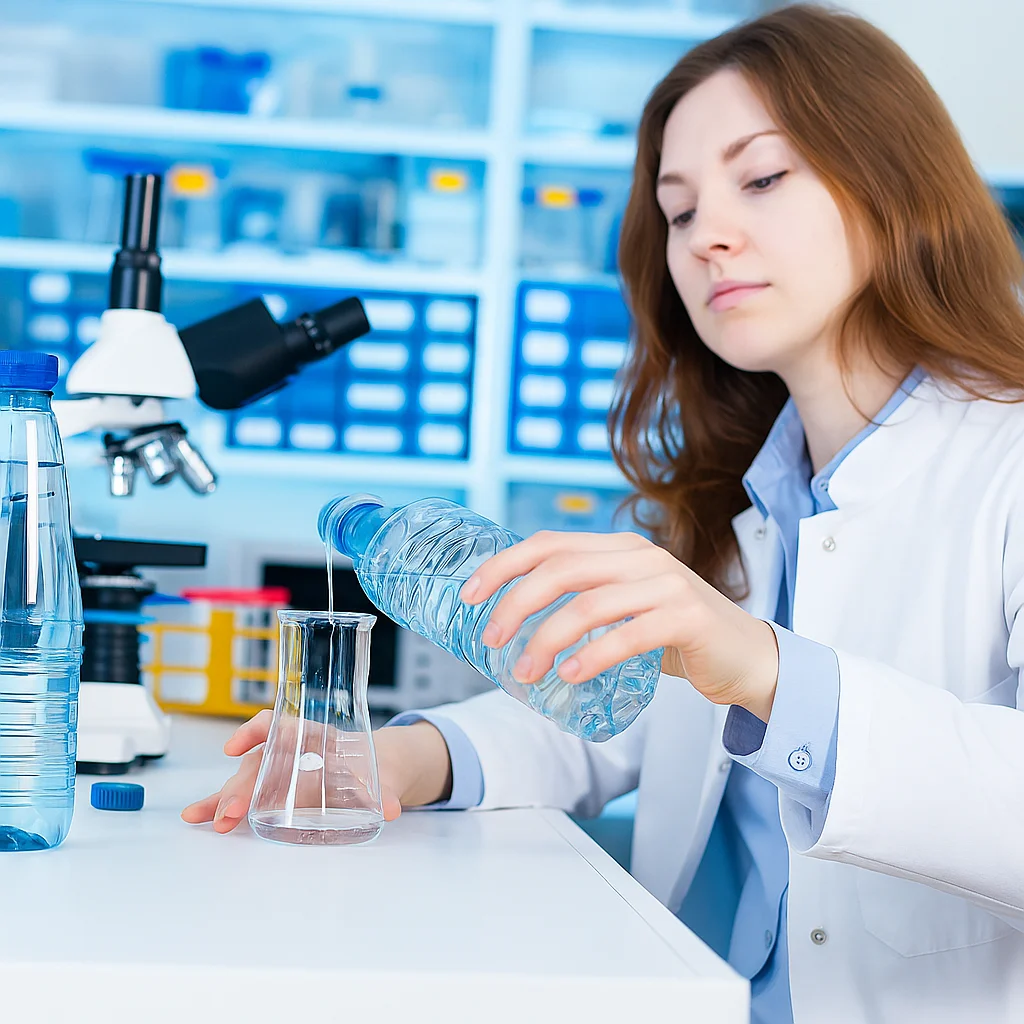
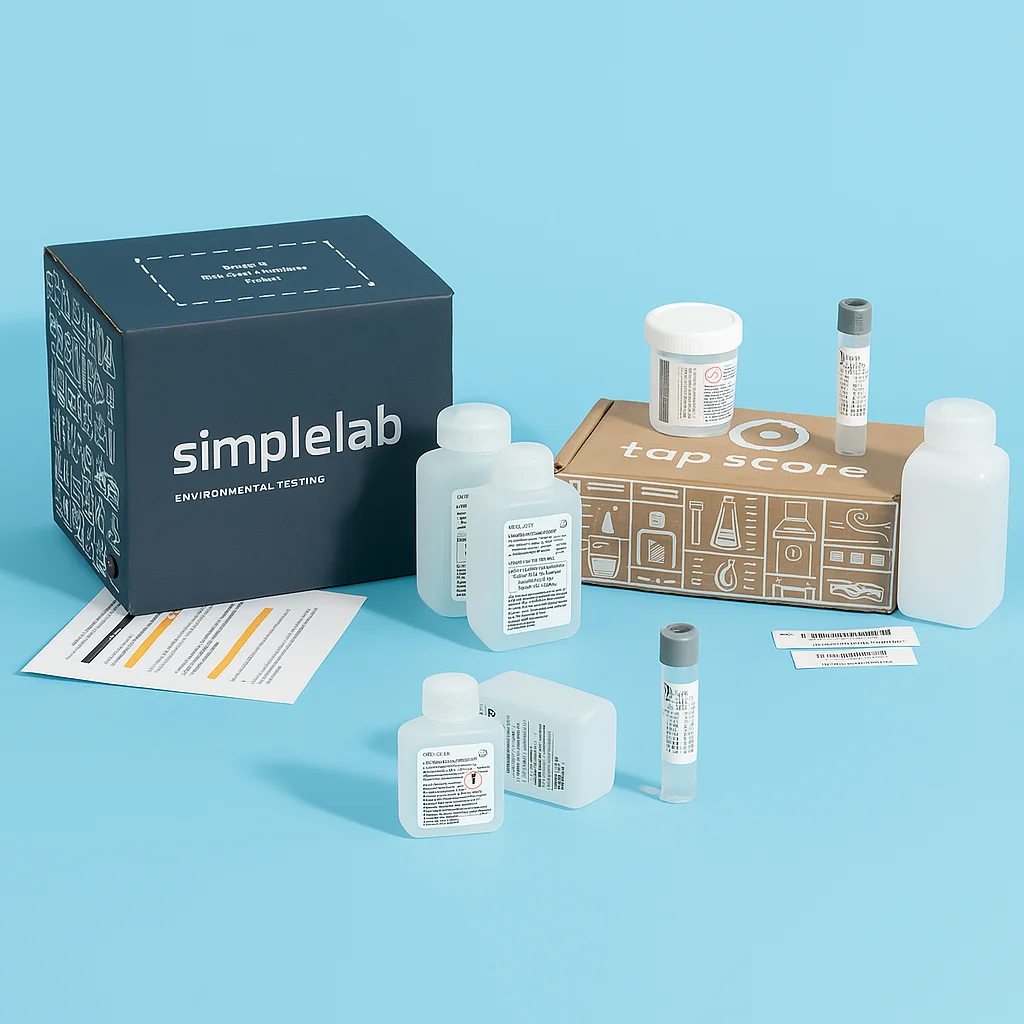
Applications of Water Testing Kits
Diverse Applications of Water Testing Kits
Household Use Water testing kits are widely used in residential settings to evaluate the quality of drinking water sourced from taps, wells, or other supply channels. These user-friendly tools enable homeowners to routinely monitor water safety, ensuring the consumption of clean and healthy water.
Industrial Applications Across industries such as agriculture, manufacturing, and food processing, water testing kits serve as critical tools for monitoring water used in irrigation, production processes, and for maintaining regulatory compliance. Their precision ensures operational safety and quality assurance throughout diverse industrial environments.
Healthcare Facilities: In medical environments, water testing kits are crucial for ensuring water purity and safety for patient care, equipment sterilization, and pharmaceutical use. Regular testing helps prevent hospital-acquired infections and maintains strict hygiene standards.
Environmental Monitoring: Environmental agencies and organizations rely on water testing kits to monitor rivers, lakes, oceans, and other natural water sources. These tests assess pollution levels, human impact, and the effects of climate change, providing crucial data to support conservation efforts and inform policy decisions.
Importance of Accredited Testing Methods
Upholding Standards and Accuracy in Water Testing
Compliance with Standardized Testing Protocols Accredited water testing methods follow established protocols and procedures defined by regulatory authorities and international bodies, ensuring consistent, reliable, and accurate assessment of water quality across all testing scenarios.
Certified & Accredited Testing Facilities Facilities that are certified and accredited by recognized organizations demonstrate proven competence in maintaining stringent quality standards. Their testing procedures meet rigorous benchmarks for accuracy, precision, and methodological reliability, reinforcing trust in their results.
Reliable & Validated Testing Outcomes By utilizing accredited methods and certified facilities, water testing delivers results that stakeholders can depend on with confidence. The credibility of this data is critical for making informed decisions in water resource management, regulatory compliance, and public health protection
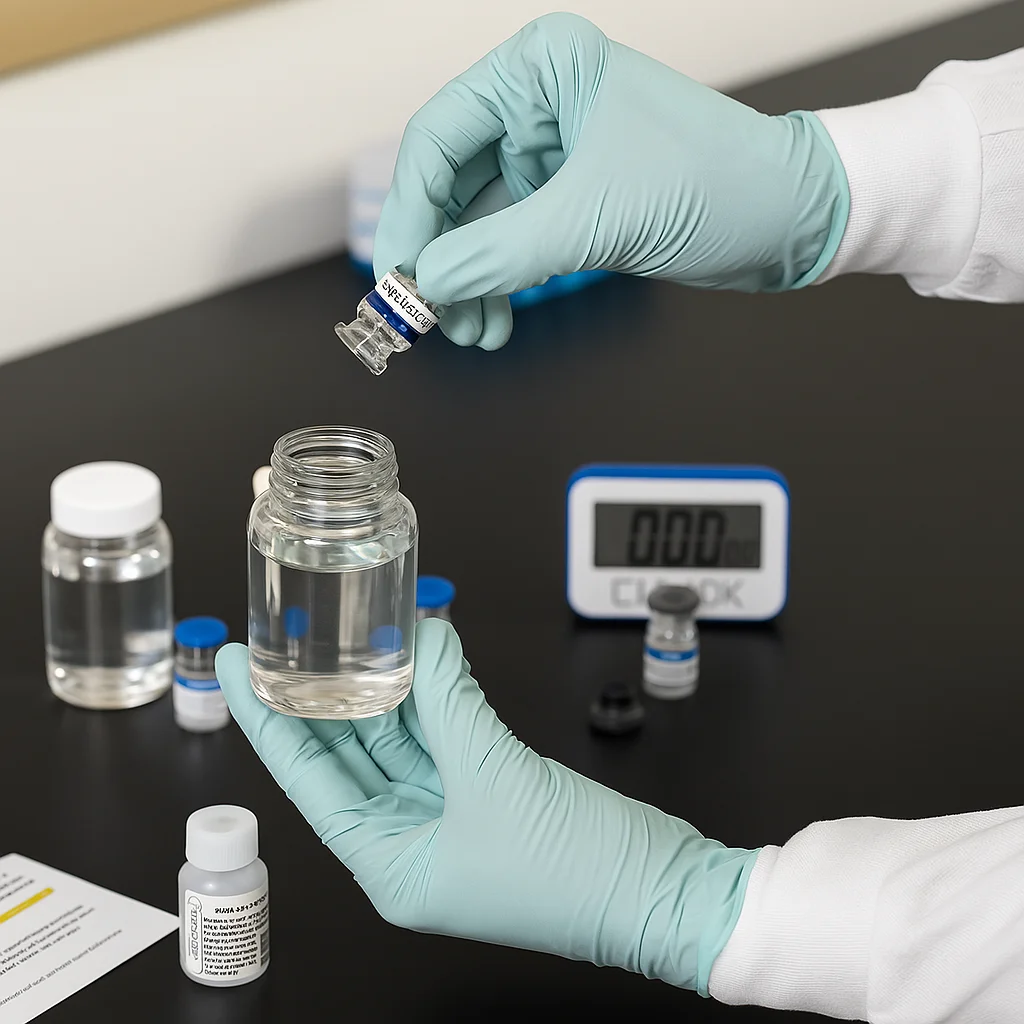
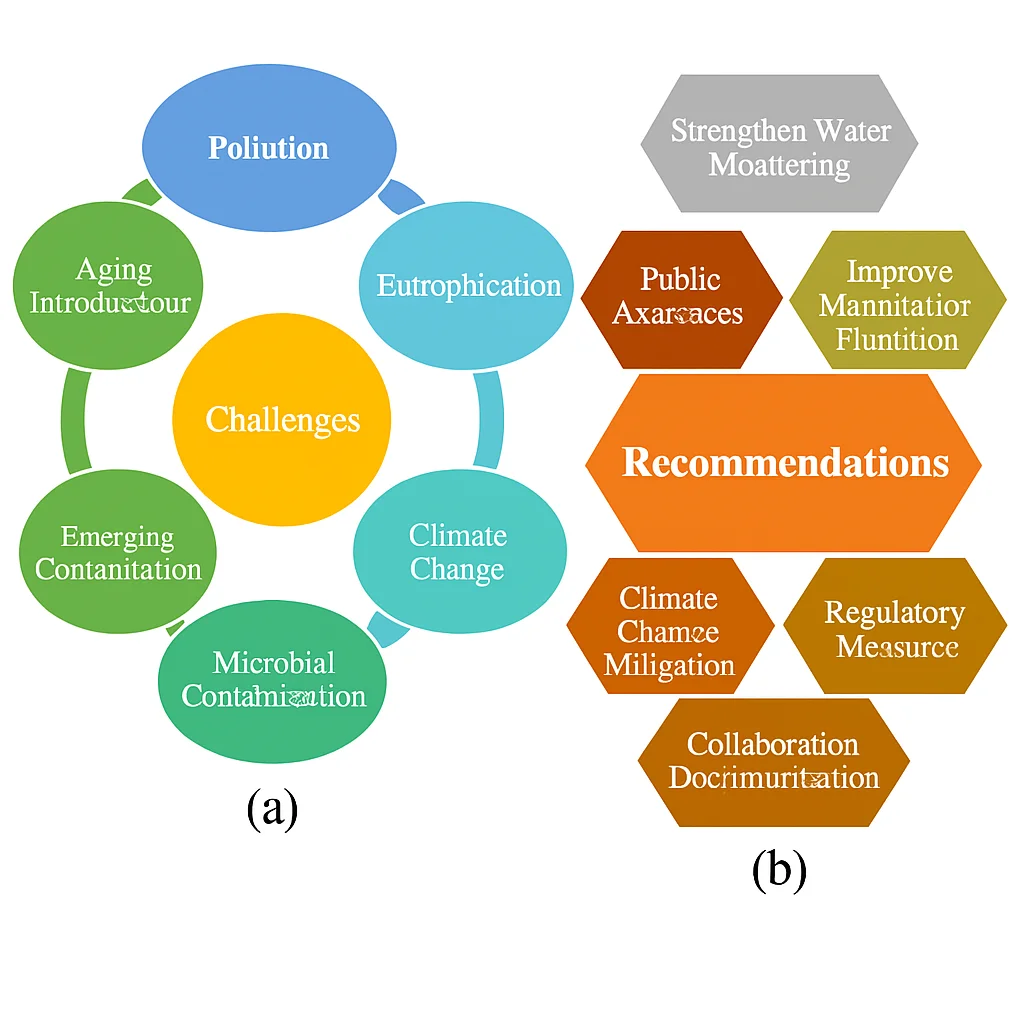
Challenges in Water Quality Testing
Challenges in Water Quality Assessment
Sampling Challenges Collecting representative water samples can be difficult due to variables such as sampling location, timing, and technique. Improper sampling may yield biased or inconsistent results, compromising the accuracy and reliability of water quality evaluations.
Equipment Maintenance & Calibration To ensure dependable results, water testing equipment must be regularly calibrated and properly maintained. Neglecting these procedures can lead to faulty measurements and undermine data integrity, affecting decision-making and compliance outcomes.
Interpreting Results with Expertise Analyzing water testing data requires technical expertise to decipher complex information, identify patterns, and detect anomalies. Accurate interpretation involves factoring in testing methods, sampling conditions, and regulatory limits, enabling meaningful assessments and informed actions.
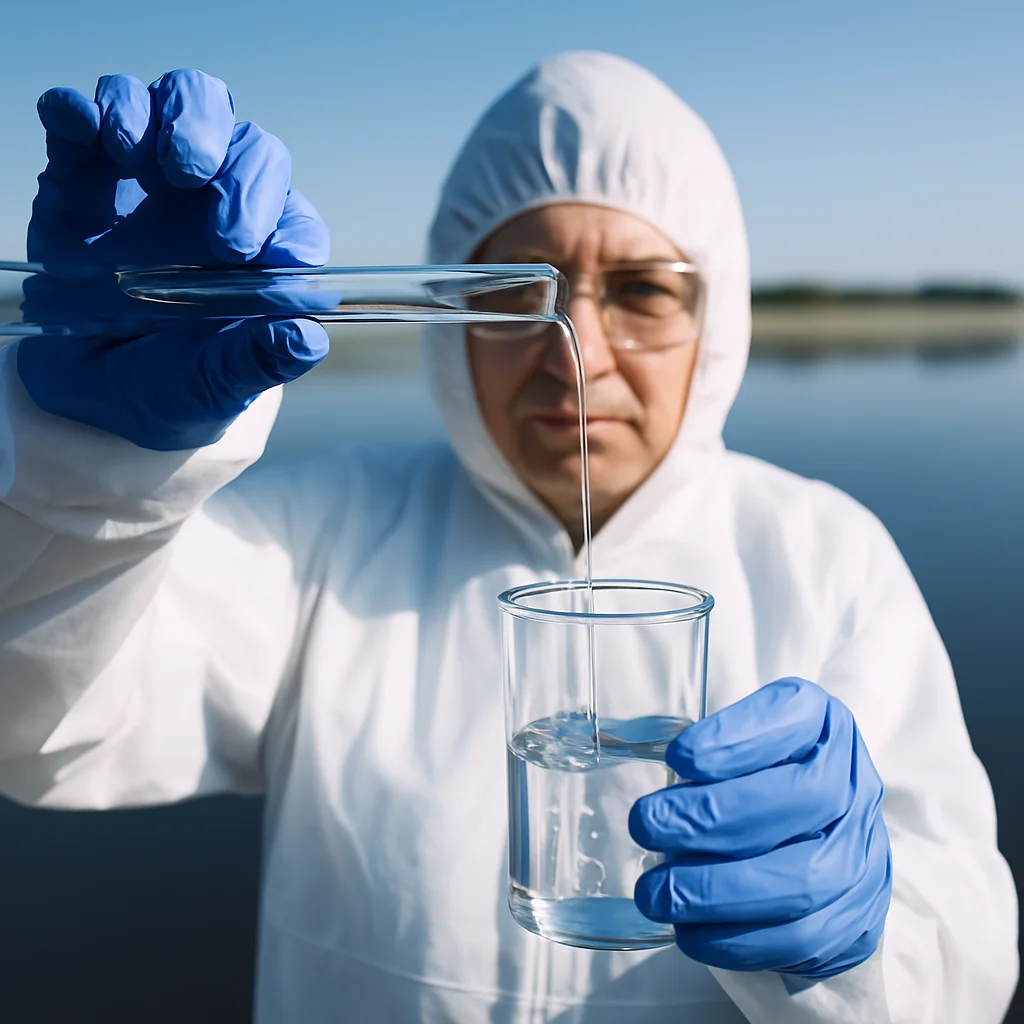
Environmental Impact of Water Quality Testing
Environmental Responsibility in Water Quality Testing
Managing Waste from Testing Procedures Water quality testing can produce waste such as chemical reagents, disposable consumables, and laboratory apparatus. To reduce environmental impact and maintain regulatory compliance, it is essential to implement effective waste management protocols throughout testing operations.
Integrating Sustainable Practices in Testing By embracing sustainable methods—including waste reduction, efficient resource utilization, and the adoption of green technologies—testing facilities can significantly diminish their ecological footprint. These practices support broader goals of environmental preservation and reflect a commitment to responsible resource management.
Minimizing the Testing Footprint To further limit environmental impact, laboratories can pursue recycling and reuse programs, ensure safe disposal of waste, and invest in energy-efficient equipment. The integration of eco-friendly alternatives not only lowers carbon emissions but also aligns testing operations with global sustainability objectives.
Best Practices for Water Testing
Best Practices in Water Sample Analysis
Standardized Sample Collection Protocols Adhering to established sampling procedures is critical for preserving the integrity and accuracy of water samples. Use clean, sterile containers and follow recommended protocols to prevent contamination and ensure that collected samples are truly representative of the water source being tested.
Robust Quality Assurance and Control Systems To guarantee reliable and precise results, it’s essential to implement comprehensive quality assurance (QA) and quality control (QC) systems. This includes conducting routine proficiency testing, regular equipment calibration, and systematic data validation to uphold the credibility of testing outcomes.
Comprehensive Documentation and Records Management Thorough documentation of each step—from sample collection to final reporting—is vital for ensuring traceability, regulatory compliance, and effective quality oversight. Accurate record-keeping underpins the transparency and integrity of water testing operations and supports continuous improvement efforts.

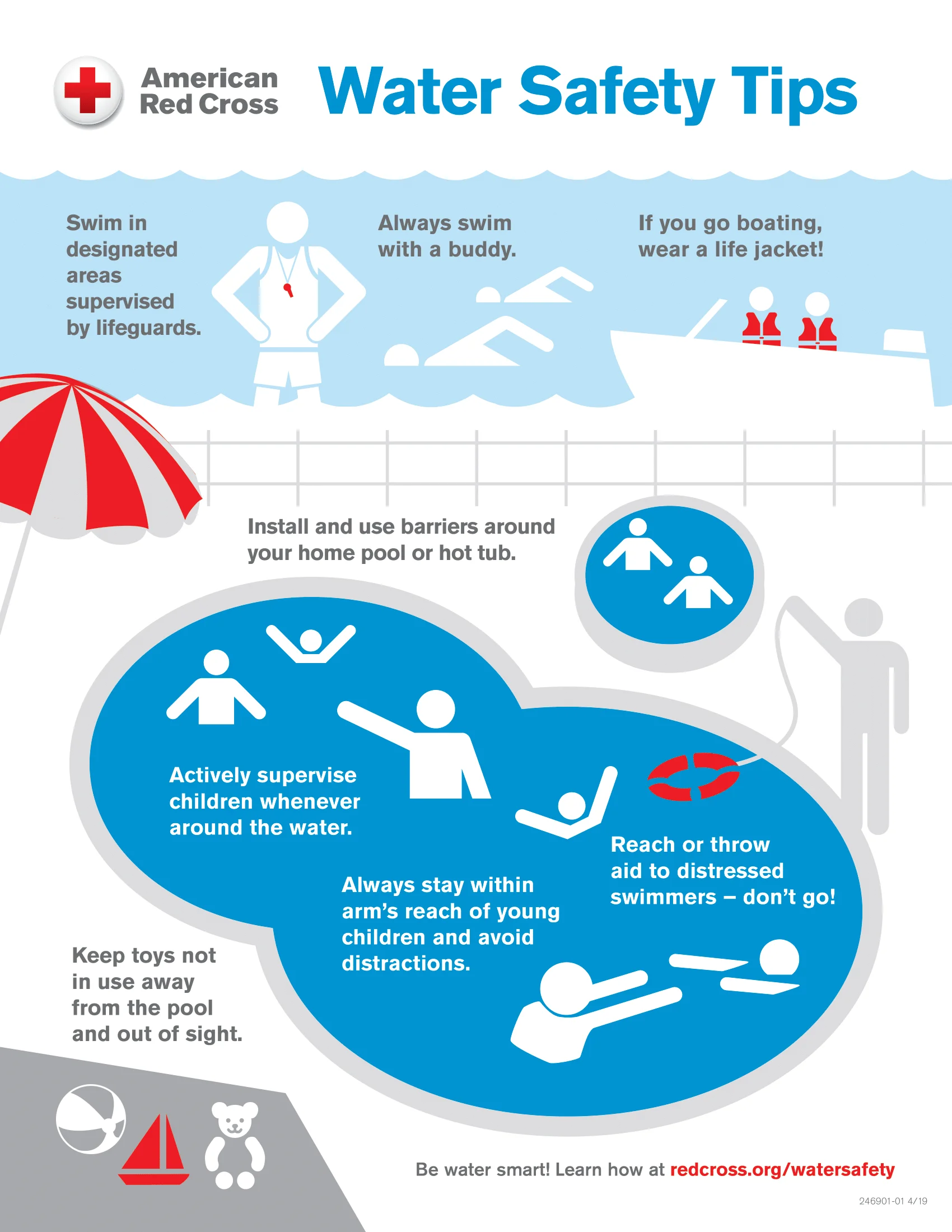
Importance of Public Awareness and Education
Strengthening Public Awareness and Engagement in Water Safety
Promoting Water Quality Awareness It is essential to educate the public on the importance of water quality testing and the potential dangers associated with contaminated water sources. Through targeted awareness campaigns, communities can better understand the sources of contamination and the critical role of preventive testing in protecting public health.
Fostering Community Involvement in Testing Initiatives Encouraging active community participation in water quality monitoring helps strengthen environmental stewardship. By offering accessible testing resources, educational materials, and hands-on training, we can empower residents to take an informed and proactive role in maintaining clean and safe water. Collaboration between local authorities, NGOs, and academic institutions can amplify these efforts.
Empowering Individuals for Water Safety Action Individuals can play a pivotal role by conducting home water tests, applying appropriate treatment methods, and advocating for infrastructure improvements. Promoting community-led programs focused on water conservation, pollution prevention, and sustainable water management helps build long-term resilience and ensures that water safety becomes a shared responsibility.
A Water Testing Kit is a tool designed to analyze the quality of water. It typically includes various tests to detect contaminants and assess the safety of drinking water. Users follow the provided instructions to collect samples and perform tests.
Water Testing Kits can measure parameters such as pH levels, chlorine content, hardness, presence of bacteria, and various contaminants, providing a comprehensive analysis of water quality.
Yes, many Water Testing Kits are designed for home use, allowing individuals to assess the quality of their drinking water without the need for professional assistance.
The accuracy of Water Testing Kits varies, but reputable kits provide reliable results. It’s essential to follow the instructions carefully to ensure accurate readings.
Yes, certain Water Testing Kits are specifically designed to detect heavy metals like lead, copper, and other contaminants that may pose health risks.
Testing frequency depends on factors like water source and local conditions. Generally, it’s advisable to test well water annually and tap water more frequently, especially if there are changes in taste, odor, or appearance.
Yes, a Water Testing Kit’s results can indicate whether water is safe for consumption by assessing the levels of contaminants and adherence to regulatory standards.
Yes, some Water Testing Kits include tests for the presence of bacteria and other microorganisms, providing insights into water hygiene.
Yes, specialized Water Testing Kits are available for assessing the quality of water in swimming pools, aquariums, and other water features, focusing on parameters relevant to those environments.
Most Water Testing Kits come with clear instructions and charts to help interpret results. If uncertain, consulting with the kit’s customer support or a water quality professional is recommended for clarification.
